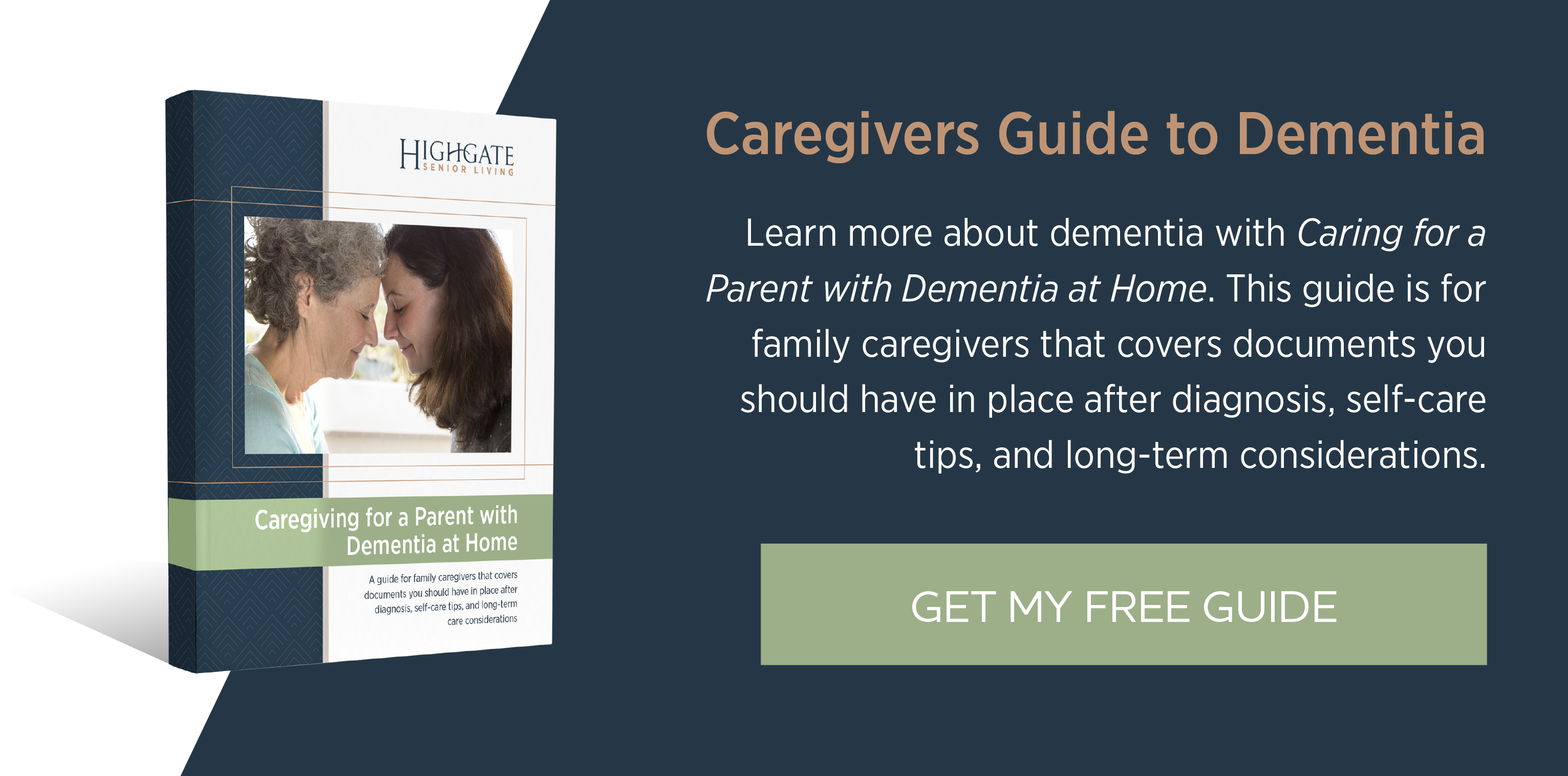 Providing care to a loved one with dementia is a noble undertaking, but it is not an easy task and many family caregivers aren’t exactly sure what to expect as the disease progresses. Called “the invisible second patients,” family caregivers often sacrifice their own health and well-being to care for their loved ones.
Providing care to a loved one with dementia is a noble undertaking, but it is not an easy task and many family caregivers aren’t exactly sure what to expect as the disease progresses. Called “the invisible second patients,” family caregivers often sacrifice their own health and well-being to care for their loved ones.
What to Watch For
When family members take on a caregiving role for a loved one with dementia, they are also at risk of experiencing caregiver stress and burnout. Family caregivers can experience:
- Sleep disturbances,
- Changes in physical and psychological health
- Social isolation
- Financial strain.
According to the article written by Irina Fonareva, Ph.D. and Barry S. Oken, M.D., a growing number of family caregivers have experienced chronic stress associated with the extraordinary demands of caring for a relative with dementia.
The mindset of the caregiver is also important. Family members who become family caregivers because of a sense of duty or guilt are more likely to deal with the psychological downsides of caregiving.
Changes Your Loved One May Experience
Watching someone you love slowly lose their mental, physical, and emotional capacities is hard to do. Caregivers of seniors with dementia can expect to see some of the following symptoms:
- Agitation, which also includes verbal and physical aggression. Patients with dementia lose the ability to care for themselves or communicate what care they need to their caregivers. Unmet needs cause frustration, which can lead them to express themselves in an aggressive manner.
- Paranoia and delusion, prompted by memory loss and declining cognitive function. An inability to recognize and process the world around them causes many patients in mid-to-late-stage dementia to fall into delusion, such as believing caregivers are stealing items they’ve misplaced or lost.
- Wandering. Caused by the memory loss associated with dementia, wandering is a tendency to become disoriented and lost in familiar places, such as stores, the neighborhood, or even the home.
- Repetition of words or actions, is another symptom caused by memory loss. However, dementia also steadily impairs a person’s ability to communicate, so at later stages, repetitive behavior can be an attempt to communicate a need or concern.
- Forgetting or refusing to bathe. This behavior is often caused by depression, but it could also be from a benign decline in olfactory acuity or memory loss.
- Forgetting mealtime, which could lead to either skipping meals or eating a meal multiple times. At more advanced stages, patients can forget to chew and swallow their food or forget how to use eating utensils.
- Incontinence, either from forgetting where the restroom is, an inability to recognize the meaning of bowel or bladder sensations, or an inability to perform the physical steps required to use the restroom.
Handling Caregiver Stress and Burnout
When providing care for a loved one with dementia, knowing the warning signs, but also how to cope with caregiver stress can prevent caregiver burnout. Here are a few ways to manage caregiver stress:
1. Do Your Research
Understand how the disease affects memory and personality, so you can be prepared to see uncharacteristic changes in your loved one’s behavior.
2. Be Realistic
The definition of a “good” day will change as the disease progresses. Keep your loved one safe, comfortable, and as happy as you can. This may mean compromising for the sake of preventing unwanted conflict. Offering options, rather than asking a broad question can also alleviate conflict and make decisions easier for your loved one.
3. Know When to Ask for Help
Caregiving is an emotionally and physically exhausting task. Support from family, friends, and community support groups will help alleviate that burden. Also, consider the benefits of a short-term respite stay in a memory care community to allow yourself time to process and regroup.
4. Plan Ahead
Identify boundaries that allow you to identify when a senior living community might be the best fit for your loved one. Memory care communities have staff that is equipped and trained to manage the many changes and challenges that come with caregiving for those with dementia. If you find that caregiving is straining your relationship with your parent or loved one, it may be time to let someone take the role of caregiving for you so you can focus on supporting your loved one through their disease.
Doing your research early and understanding what memory care communities have to offer to make it easier to plan for drastic changes in your loved one’s behavior or health. Take a look at this video to learn more about what to look for when considering memory care communities.







